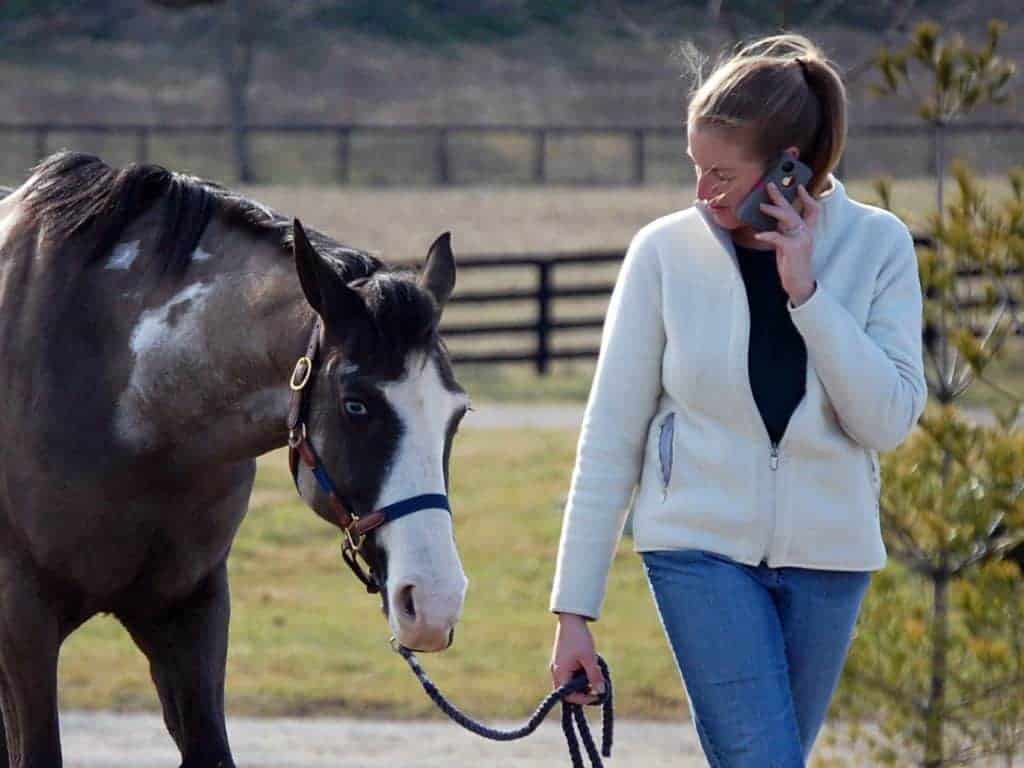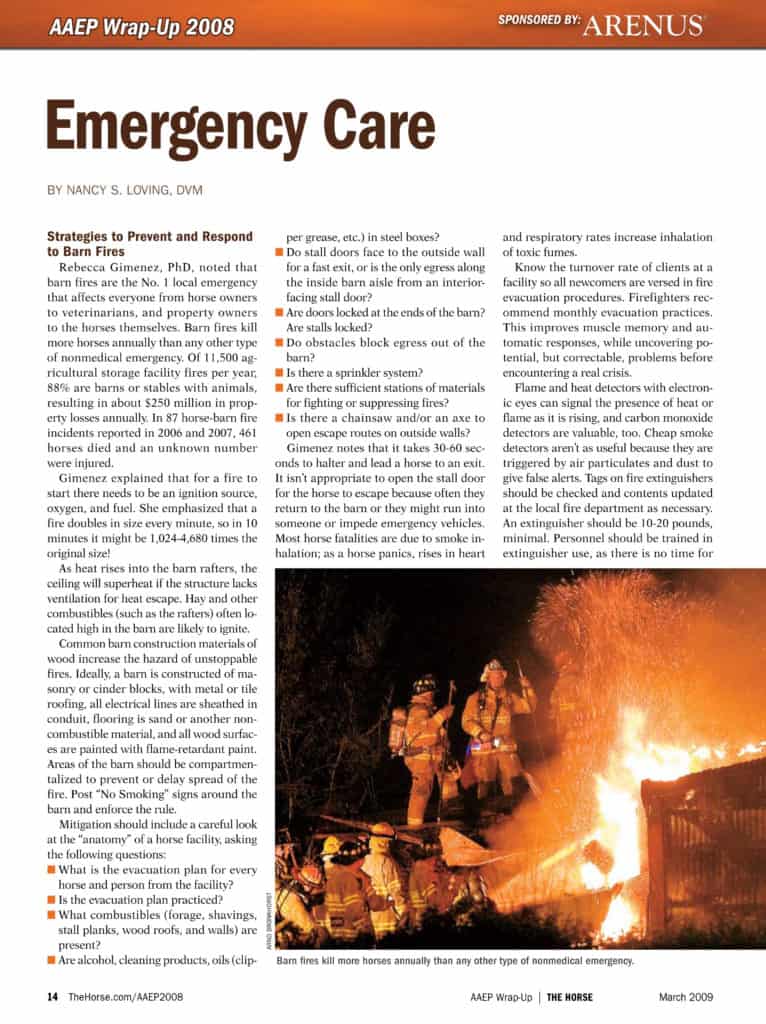
Waiting for the Veterinarian
It’s important an owner knows how to help his or her injured horse until the veterinarian arrives.

It’s important an owner knows how to help his or her injured horse until the veterinarian arrives.
Although it is the most basic form of health care, horse owners should be aware that horses need first aid care just as much as people do, if not more.

Due to their inquisitive nature, a well-developed flight response, and that they are commonly confined in areas with potential obstacles such as metal or wire, horses tend to be accident prone, making wounds a fairly common occurrence.
The best way to prepare for emergencies is to try to prevent them. Perhaps the best approach to first aid is to minimize the risk of accidents, injuries, and disease. Sometimes we do foolish things with, and to, our horses.
An anonymous donor picked up the tab to rescue a horse from a sandbar in the middle of the fast-moving Gila River five days after the animal was stranded there when its rider attempted to cross the water, the Arizona Republic reported.
To help further the cause of improving large-animal emergency rescue training, USRider has contributed significant donations to the University of Florida (UF) College of Veterinary Medicine over the years to support the college’s large-anim
Partner groups of the Louisiana State Animal Response Team (LSART) combined their expertise Nov 13-15 in Minden, La., for a course in technical large animal emergency rescue (TLAER). The course was held at the LSU Fire and Emergency Training Institute’s Pine Country location. Leaders Tomas Gimenez, DrMedVet, and Rebecca Gimenez, PhD, provided 24 hours of classroom instruction combine
Virginia Cooperative Extension hosted a Technical Large Animal Emergency Rescue three-day emergency training program at the Middleburg Agricultural Research and Extension
Veterinarians from Louisiana State University (LSU) responded to an emergency call the evening of May 30 after learning that two horses were trapped in an overturned horse trailer as a result of a single vehicle accident.
LSU veterinarians,
Dean Hendrickson, DVM, MS, Dipl. ACVS, director of the James L. Voss Veterinary Teaching Hospital at Colorado State University, will host “Equine First Aid: A Horse Owner’s Guide to Emergencies and Wound Care,” on Thursday, June 4, from 7-9 p.m.

Equine authorities at the 2008 American Association of Equine Practitioners Convention discussed preparation for and management of barn fires, eventing emergencies, endurance event injuries, racetrack emergencies, emergency care at rodeos, emergency services at steeple-chase and cross-country hunter events, and emergency veterinary care at horse shows.
Days End Farm Horse Rescue of Woodbine, Md., will offer Large Animal Rescue Training on two separate dates, March 22 and May 9.
Aimed at emergency responders, horse owners, barn managers, and the general public, each one-day session runs
Traditionally, in the event of some sort of accident–trailer overturned, horse stuck somewhere, horse down, environmental disaster–the owner or witness often attempts to deal with the incident himself/herself or with the aid of a friend
Barn fires are the No. 1 local emergency that affects everyone from horse owners to veterinarians, and property owners to the horses themselves. Barn fires kill more horses annually than any other type of nonmedical emergency.
In the wake of the recent flooding in the Pacific Northwest, Tomas Gimenez, Dr.Med.Vet, of Technical Large Animal Emergency Rescue weighed in on safety tips for horse owners managing horses and farms in flood conditions.
USRider and Eastern Kentucky University (EKU) are partnering for the fifth annual large animal emergency rescue training course. As with previous years’ training, specially trained demonstration animals will help provide realistic hands-on
Stay on top of the most recent Horse Health news with
"*" indicates required fields